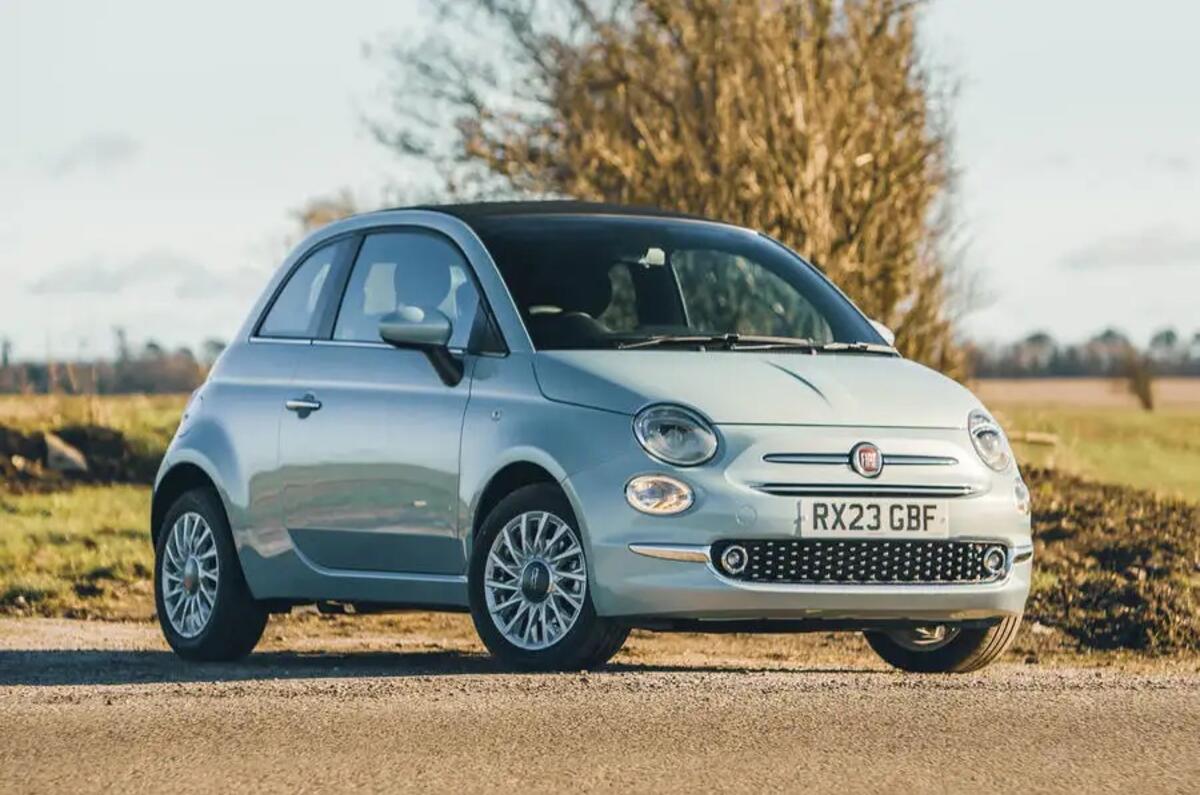Fiat’s decision to create a new petrol-engined 500 was driven by older drivers shunning electric cars, boss Olivier François has said.
Last month, the Italian brand confirmed the new 500 Ibrida will arrive by early 2026, securing a long-term future for its big-selling ICE city car.
The 500 Ibrida will be based, unusually, on a modified version of the 500e's EV platform. This means it will comply with the EU’s upcoming General Safety Regulations 2 – something the current 500, which is based on a 20-year-old platform, falls foul of.
However, the key reason for the decision came after European buyers “turned their back on the sustainable solutions”, which exacerbated wounds already sustained from the Covid pandemic, raw material shortages and a lack of government incentives.
Fiat felt it had to react to slow EV sales of its top-seller by extending the life of the more popular ICE model (108,943 of the 500’s the total 173,187 sales last year were petrol-engined), François said at the brand’s 125th-anniversary celebrations in Turin.
"For me the 500 is electric. We have the perfect car in the [500e],” he said. “That being said, we obviously, like everyone else, thought that the world would go electric faster and the cost of electrification would go down faster.
“But, we couldn't imagine that Covid would happen, shortage of raw materials would happen, the European Society, not all, not the youngest part, would turn their backs on the sustainable solutions.
"But this is the reality. We have to face those realities.
He added: “It's very important for us to fit every expectation wherever we go. So we had to react [by updating] the previous-generation hybrid, which obviously was getting a little bit old [and] tired, and that couldn't host the new regulations. The scenario was that we would go ahead very quickly.
"I still believe that the future of urban mobility is electric.”
François confirmed that the 500 Ibrida would be the final ICE 500 model that Fiat would release, although this isn’t surprising, given the upcoming 2035 EU ban on the sale of all new ICE cars.
“It will die [after this] and people will move to electric,” he said. “The transition just hasn’t happened as fast as we thought, especially [in markets like] Italy, which is why we made this decision on the hybrid.”









Join the debate
Add your comment
Hybrid sales and new releases are booming and it makes sense. Best of both worlds for more people more of the time.
Does anyone still seriously believe that the 2035 ban will come into effect on time and undiluted?
Well Sir Flip Flop is going for 2030.
so he means older people do not buy into the "climate crisis" money making scam!
Your words NOT his.